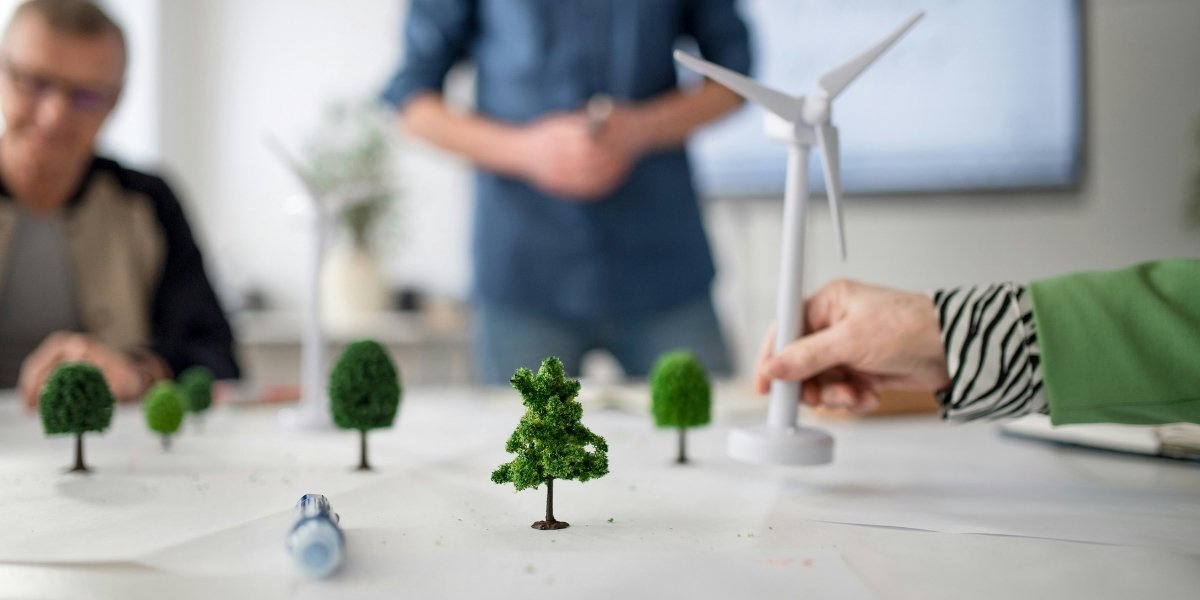By: Joyce Wright
Cities around the world are evolving, embracing cutting-edge technologies to improve urban living. These “smart cities” integrate advanced infrastructure, data systems, and sustainable designs to enhance transportation, security, and environmental health. Real estate is at the heart of this transformation, as homes and commercial properties must adapt to new standards of connectivity and efficiency. Smart grids, automated systems, and energy-saving solutions are no longer optional but expected.
In places like Singapore and Amsterdam, smart city projects have demonstrated how technology can redefine neighborhoods. Real estate developers are increasingly focused on embedding these innovations into new construction projects to attract modern buyers. Properties equipped with smart thermostats, solar panels, and AI-powered security systems often sell faster and at higher prices. The shift toward tech-enabled housing is not just a trend but a necessity, driving investors and homeowners to reevaluate what adds value to a property.
Transforming Housing Markets
Smart cities are reshaping real estate markets, creating demand for homes that offer convenience, sustainability, and adaptability. Buyers prioritize properties with advanced features, from voice-activated controls to intelligent water systems that reduce waste. These preferences highlight a growing awareness of environmental impact and energy costs, making eco-friendly homes a smart financial choice.
Jessica Henderson, Founder of Sell My House Fast Houston, TX, shares, “Homeowners in Houston are looking for ways to sell quickly and seamlessly without sacrificing value. I focus on providing cash offers that close fast, especially for properties that might not meet modern smart home standards. By helping sellers avoid costly upgrades, we simplify the process, making transitions to newer, tech-friendly homes stress-free.” Her approach aims to ensure that sellers can capitalize on current market trends without getting stuck in lengthy renovations.
Smart Cities Drive Innovation in Real Estate
The integration of smart technology doesn’t stop at residential properties. Commercial spaces are also evolving, with offices featuring automated lighting, air filtration systems, and collaborative tools designed to improve productivity. Urban planners and investors recognize that these upgrades enhance property value while reducing operational costs, making them attractive to businesses and tenants.
Justin Azarias, Owner of Property Homebuyers CA, explains, “In California, we’ve focused on revitalizing homes with modern upgrades that match today’s smart city standards. From installing energy-efficient appliances to incorporating smart home systems, our goal is to increase property appeal while keeping affordability in mind. I believe blending technology with function makes homes more attractive and improves resale potential.” Justin’s innovative approach combines practical improvements with forward-thinking design, ensuring long-term value.
Future-Proofing Homes for Tomorrow
Real estate in smart cities isn’t just about technology; it’s about adaptability. Properties that offer flexible layouts, shared workspaces, and integrated green spaces stand out in competitive markets. These features reflect changing lifestyles, where remote work and sustainable living are prioritized. Developers are investing in multi-purpose spaces that meet evolving needs, ensuring their properties remain relevant for years to come.
Albert Aka, Founder of Top At Home, emphasizes, “We focus on accessibility and privacy in all aspects of home design. While our main services cater to healthcare needs, we’ve learned the importance of creating spaces that support mental and physical well-being. Smart cities inspire designs that reflect these values, ensuring homes are not just functional but supportive of healthier lifestyles.” Albert’s insights highlight the broader impacts of smart cities beyond technology, emphasizing wellness and accessibility.
Smart Infrastructure for Sustainable Living
Sustainability is a core principle of smart city development, and real estate plays a central role in achieving green goals. Developers are embracing eco-friendly construction materials, energy-efficient building designs, and integrated renewable energy systems to meet modern demands. Water recycling systems, rooftop gardens, and electric vehicle charging stations are becoming standard features in smart neighborhoods.
These advancements not only reduce environmental impact but also lower long-term operating costs, benefiting homeowners and investors. Properties designed with sustainability in mind appeal to eco-conscious buyers who value reduced carbon footprints and energy savings. Such homes often command higher resale values and attract forward-thinking buyers willing to pay a premium for long-term benefits.
The Role of Community-Centric Designs
Smart cities prioritize connectivity, not just through technology but also by fostering stronger communities. Mixed-use developments that combine residential, commercial, and recreational spaces create vibrant, walkable neighborhoods. These areas encourage social interaction, reduce commuting times, and support local businesses, improving overall quality of life.
Andy Kolodgie, Founder of Sell My House Fast, reflects, “Helping homeowners move out of outdated properties into smarter homes has been a rewarding experience. By offering flexible solutions and fair offers, we make transitions smoother for sellers. I see every sale as an opportunity to help someone start fresh with a more connected and efficient living space.” Andy’s expertise underscores how technology and real estate intersect to create better opportunities for buyers and sellers alike.
Smart Cities and Economic Growth
Smart city initiatives are driving economic growth by attracting businesses, investors, and skilled professionals. Enhanced infrastructure and smart technologies improve operational efficiency, making cities more appealing for startups and established companies. This economic boost fuels job creation and housing demand, further stimulating the real estate market.
Investments in smart transportation systems, such as autonomous vehicles and bike-sharing networks, enhance mobility and reduce traffic congestion. These features make neighborhoods more desirable, contributing to higher property values. The ripple effect extends to nearby areas, encouraging regional development and revitalization.
Conclusion: The Future is Now
Smart cities are redefining what it means to live comfortably and efficiently. From energy-saving systems to AI-driven features, modern neighborhoods prioritize convenience, sustainability, and innovation. Real estate professionals like Jessica Henderson, Justin Azarias, Albert Aka, and Andy Kolodgie are at the forefront of this transformation, helping homeowners and buyers navigate the changes. As cities continue to evolve, embracing smart technologies will be the key to thriving in tomorrow’s real estate market.
Published by Elle G.









